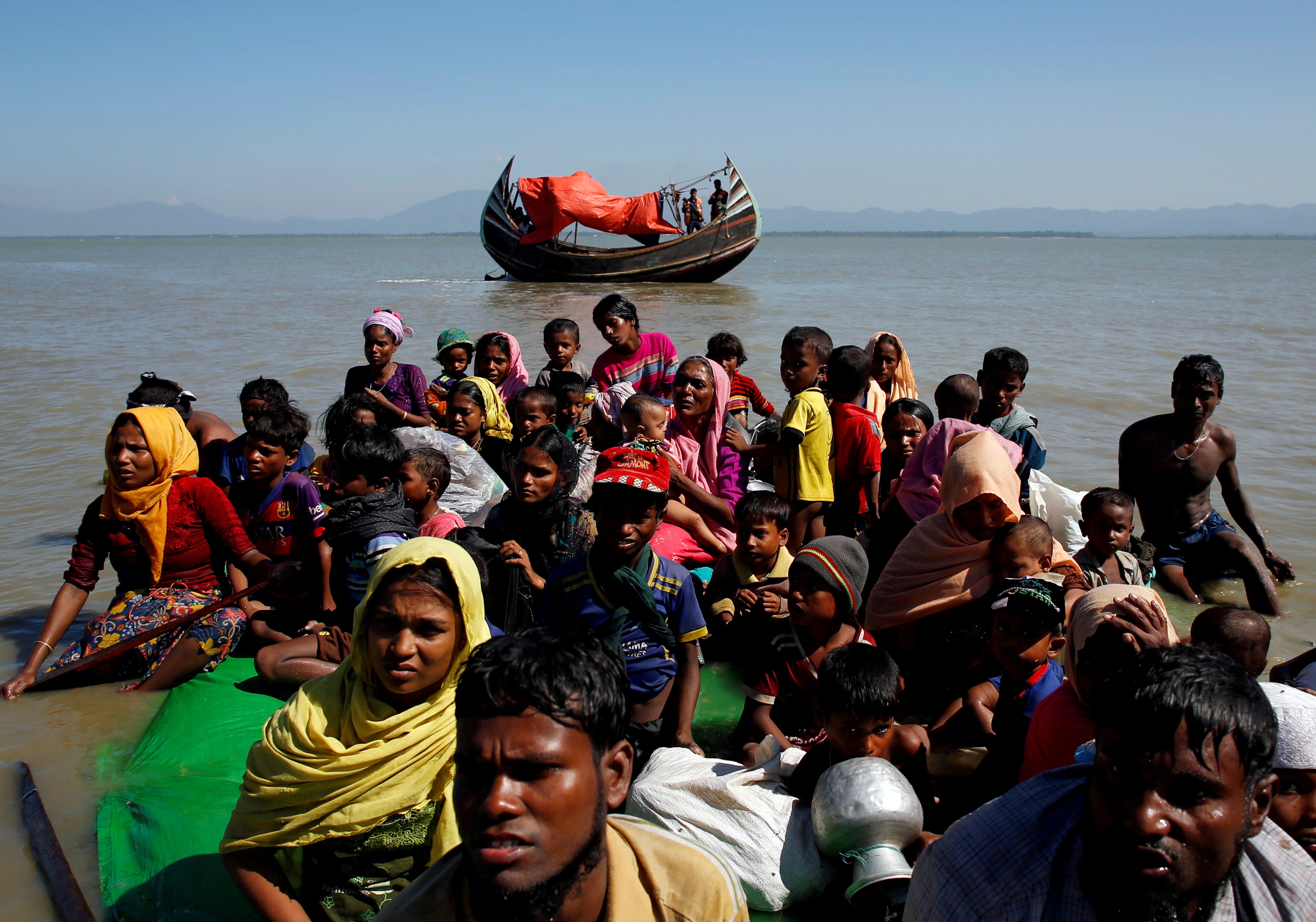Bangladesh under no obligation to accept Rohingya refugees stranded at sea, minister says
Many of the survivors are sick and suffering from extreme dehydration

Your support helps us to tell the story
From reproductive rights to climate change to Big Tech, The Independent is on the ground when the story is developing. Whether it's investigating the financials of Elon Musk's pro-Trump PAC or producing our latest documentary, 'The A Word', which shines a light on the American women fighting for reproductive rights, we know how important it is to parse out the facts from the messaging.
At such a critical moment in US history, we need reporters on the ground. Your donation allows us to keep sending journalists to speak to both sides of the story.
The Independent is trusted by Americans across the entire political spectrum. And unlike many other quality news outlets, we choose not to lock Americans out of our reporting and analysis with paywalls. We believe quality journalism should be available to everyone, paid for by those who can afford it.
Your support makes all the difference.Bangladesh is under “no obligation” to provide shelter for dozens of Rohingya Muslim refugees adrift for almost two weeks on the Andaman Sea, the country’s foreign minister has said.
India’s coast guard has been assisting the 81 survivors, who were found crammed inside a crippled fishing boat alongside eight people who had died, and was trying to arrange for Bangladesh to take them, Indian officials said.
But Bangladesh’s foreign minister, AK Abdul Momen, said his country expects India, the closest country, or Myanmar, the Rohingyas’ country of origin, to accept them.
“They are not Bangladesh nationals and, in fact, they are Myanmar nationals,” he told Reuters late on Friday.
“They were found 1,700km away from the Bangladesh maritime territory and therefore, we have no obligation to take them.”
Mr Momen said the refugees were 147km away from Indian territory and 324km away from Myanmar, adding other countries and organisations should take care of the refugees.
External affairs ministry spokesperson Anurag Srivastava said on Thursday that India was “in discussions with the government of Bangladesh to ensure their safe and secure repatriation”.
One senior Indian official, who declined to be named because he was not authorised to discuss the matter with media, said India planned to help the refugees with food and water, but it was not planning to take them ashore.
New Delhi did not sign the 1951 Refugee Convention, which spells out refugee rights and state responsibilities to protect them.
Nor does it have a law protecting refugees, though it currently hosts more than 200,000, including some Rohingya.
More than a million Rohingya refugees from predominantly Buddhist Myanmar are living in teeming camps in Muslim-majority Bangladesh, including tens of thousands who fled after Myanmar’s military conducted a deadly crackdown in 2017.
Traffickers often lure Rohingya refugees with promises of work in southeast Asian countries such as Malaysia.
The United Nations refugee agency, UNHCR, expressed alarm this week over the missing boat.
India said on Thursday around 47 of the refugees had ID cards saying they are displaced Myanmar nationals, issued to them by the UNHCR office in Bangladesh.
Dr Momen said this means the UNHCR should also take responsibility for those on the boat.
“If [the refugees] are UNHCR cardholders, why did they allow traffickers to take their cardholders to adrift on the high sea, leading to death?” he said.
On Saturday, they were under the aid and surveillance of India as officials were holding talks to return them to Bangladesh, said the senior Indian official who was not authorised to speak to the media.
Many of the survivors were sick and suffering from extreme dehydration, having run out of food and water after the boat’s engine failed four days into their journey, according to Indian officials.
The Independent has approached the Indian foreign ministry and the UNHCR for comment.


Join our commenting forum
Join thought-provoking conversations, follow other Independent readers and see their replies
Comments